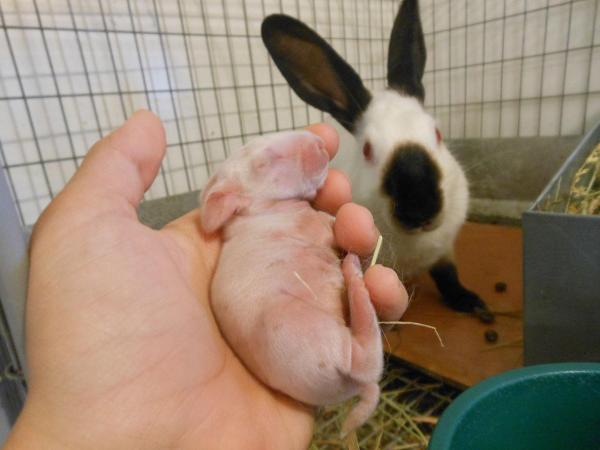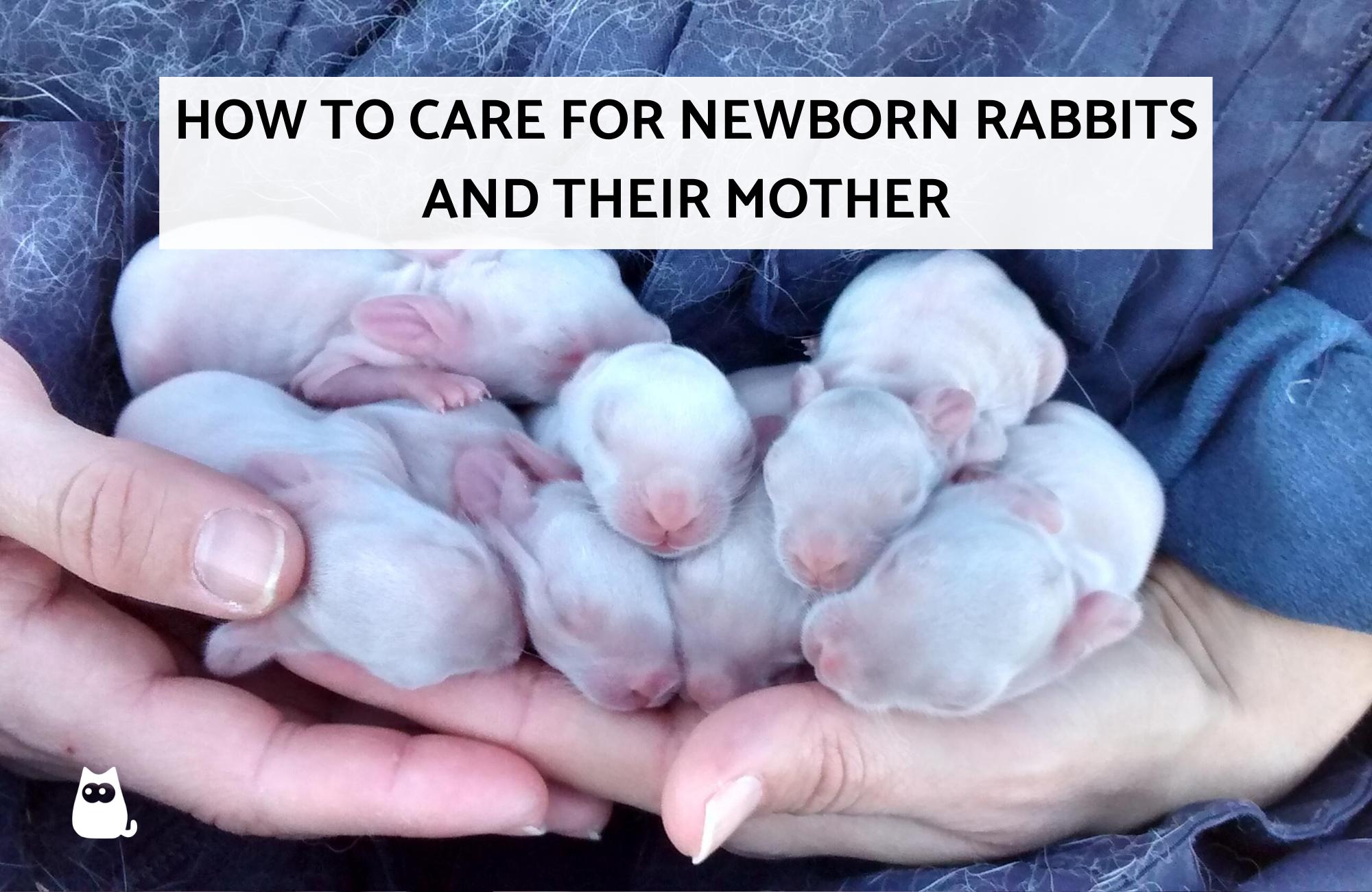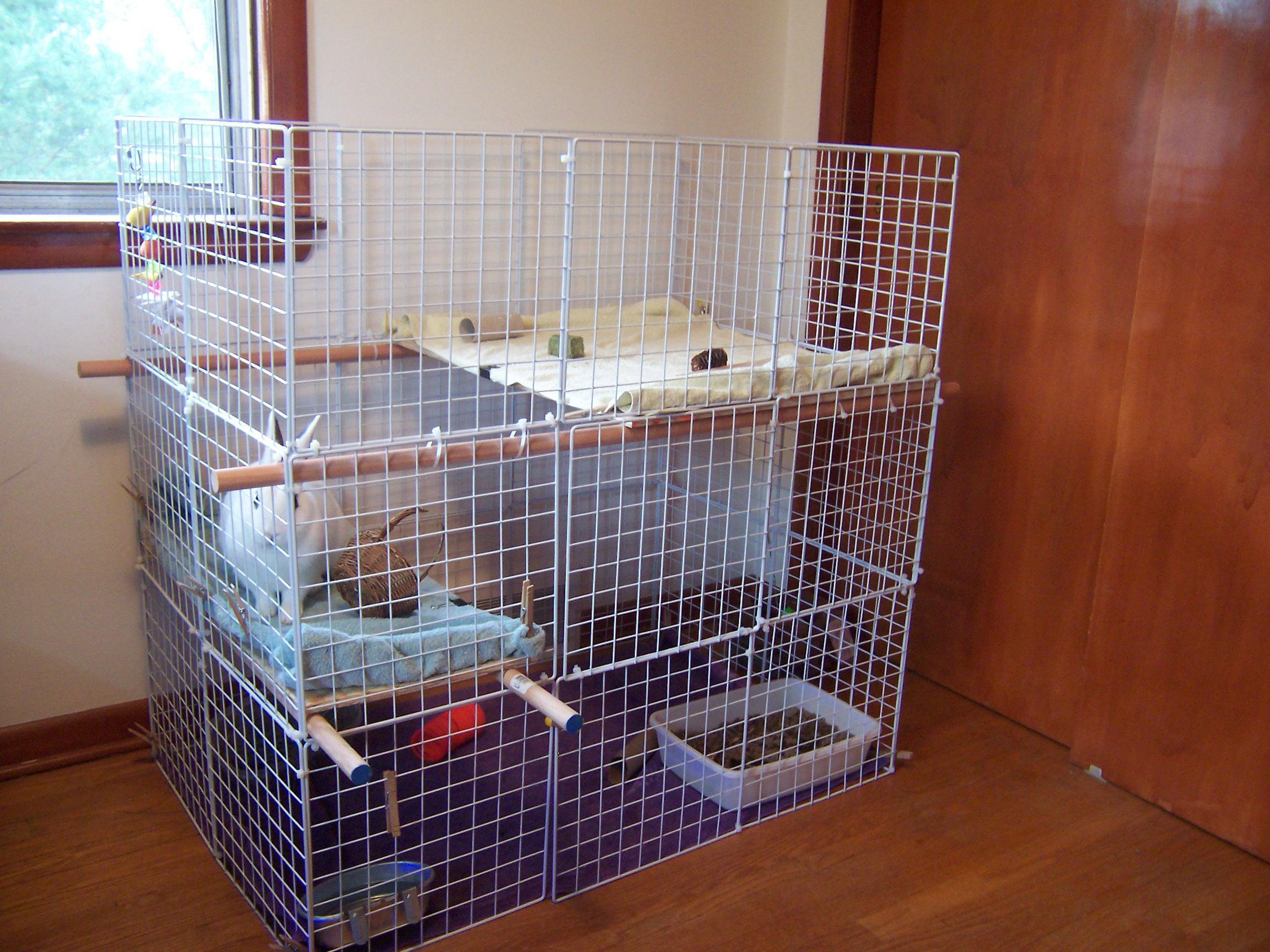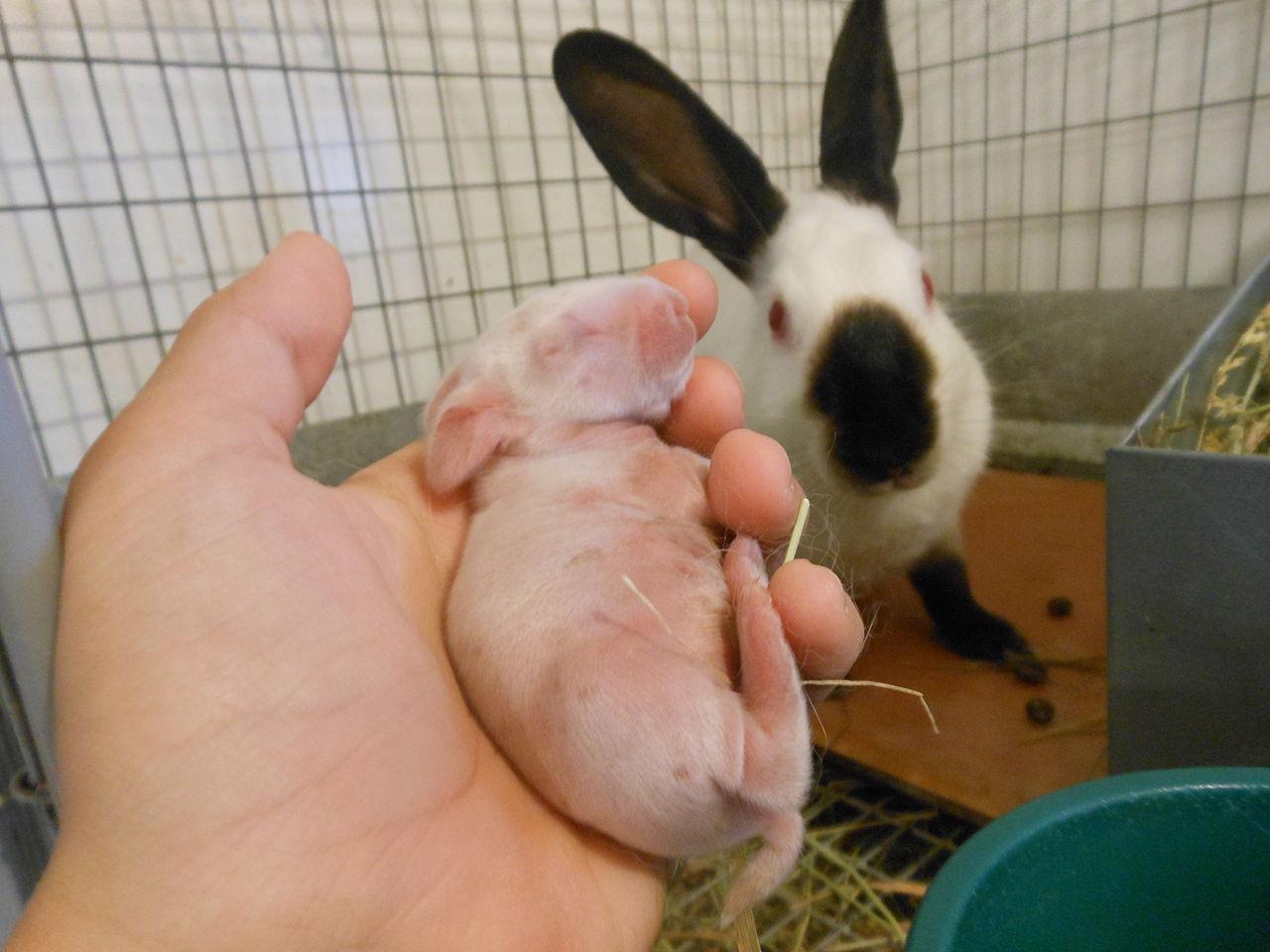How to Care for Newborn Rabbits With a Mother



See files for Rabbits
Newborn rabbits, also called bunnies, are very vulnerable. Normally, their mothers are very responsable and take great care of them. Nevertheless, we need to be informed as pet companions so we can provide them with whatever they may need to grow happily and healthily.
In this AnimalWised article we are going to teach you how to take care of your rabbit after giving birth, as well as her newborn rabbits. We'll go through their nest, diet and other care tips.
How to care for a pregnant rabbit
A rabbit's pregnancy tend to last about 20 - 30 days. If it lasts more than 32 days, you must go to the veterinarian as there's a chance that she's experiencing a miscarriage. During her pregnancy she will need a rich diet full of fresh nutritionally dense fruits and vegetables. She will naturally eat more food to provide for her babies. This is very important as a higher calorie intake will help her have a safe and healthy pregnancy.
Two days before she will give birth, it's best to reduce the quantity of her food. Although you will also observe she probably has less appetite. This is because she may experience nasea and vomiting before giving birth as her body is under a lot of stress. Don't worry if she doesn't eat the day she will give birth, but always offer her clean water as it's very important she isn't dehydrated.
Rabbits are completely capable of delivering her babies by herself and taking care of them once they are born. Nevertheless, we must be able to provide her with the correct diet and housing conditions so that she can do this without any problems. These are some medical complications she may experience:
- Toxemia: this disease is caused by a poor diet. It causes weakness, lack of coordination and seizures. It usually appears in the last stage of pregnancy or after giving birth and can be fatal.
- Mastitis: when one of these glands becomes infected by the presence of some bacteria, inflammation of the breast occurs, known as mastitis. Observe the rabbit's breasts periodically, if they are reddened and the rabbit is more apathetic than normal, see your vet immediately. If they are bluish they indicate a serious infection. Extreme hygiene of the cage to avoid infections of this type. However, before and during the lactation period, the mammary glands will swell. This is normal and healthy. We should not confuse it with this disease. If you have any doubts, bring her to the veterinarian to be examined.
- Rejecting a kit: sometimes rabbits can kill their young and eat them. The cause can be various reasons. To avoid this, avoid extreme hygiene of their nest. Allow them to feel comfortable in their own nest by providing them with the necessary materials rabbits use to form an appropriate nest. Avoid stressing your rabbit out more than she already is. If she refuses to feed one of her newborns, you must bottle-feed them so they survive.
If you observe your rabbit experiencing any abnormalities during her pregnancy, you must take her to the veterinarian as soon as possible. It's also important to take her for regular check-ups to detect any problems early on so your veterinarian can quickly find a solution before it becomes too serious.
How to prepare a rabbit nest at home
When it comes to creating a nest where the mother rabbit will give birth, you mustn't worry too much as she will do this on her own. It's important to provide her with the materials she will need and give her space and time to create a space where she will be comfortable giving birth. We mustn't stress her. They create the nest by pulling their own fur, scratching up grass and in the case of domestic bunnies kept in a hutch, they'll shred newspaper.
Once the newborn bunnies are born, they will need a safe environment where they can eat and sleep in comfort. In the wild, it will be the same nest the mother has created. Generally, the doe will stay next or near her nest but she will not always sit inside with her bunnies.
To build a safe nest for the newborn bunnies, you can get a small box made of wood or carbon. Then place a towel or warm cloth. Next, place lots of hay and goat fur. Your rabbit will probably use these materials and their own fur to arrange the nest for their babies. The towel will not only help you clean it but it will help keep the newborns warm. Their mother's fur is also useful to keep them warm but it also has their mother's scent. This helps them feel safe and calm.
Newborn bunnies will fully open their eyes around 10 days after their birth. It's important to remember that they are very sensitive to direct light, so be careful where you place the nest. Make sure it's always in the shade and doesn't receive direct sunlight.

Caring for newborn rabbits
After 20 -30 days, your rabbit will be ready to give birth. You'll get a heads up when she begins to prepare her nest. Once she does this, she will give birth within 48 hours. You may also observe that she has a loss of appetite. This is completely normal, just make sure she's drinking plenty of water and has all the necessary materials to build her nest.
When the moment has come, make sure she has fresh water and some food. Then, leave. That's right, let her give birth by herself. Not only is she more than capable of doing so but she will be less stressed with you there. After a couple of hours, you can go back and check on the newborns. Each litter is around 1 - 6 bunnies. Make sure she is feeding them and that everything seems to be okay.
Do not touch her newborns. This is not because she will later reject them, it's simply because newborn bunnies are extremely fragile and cannot cope with human contact yet. Allow them to be calm and remain in their nest. If you have a good relationship with their mother she will not see you as a threat and will allow you to be near them. You can observe them and maybe lightly pet them with your finger.
Once they are at least 3 weeks old, you may put your hand out to see if they walk on top. Then you can bring them closer to you but avoid bringing them up to the air as this will frighten them. Try to sit on the floor or crouch down to interact with them.
You may be alarmed at how unconcerned the mother rabbit appears to be with her bunnies. Mother rabbits instinctively leave their young alone for long periods of time so her presence doesn’t attract predators to the nest. As long as she is feeding them twice a day, you shouldn't worry. Simply make sure they are not in direct sunlight and that they are warm. Provide the mother rabbit with plenty of fresh food and water so she can continue to be healthy and feed her children.
When it comes to caring for the baby bunnies, the main factors are a comfortable nest and diet. It's also important to take them to regular check-ups with their veterinarian and keep up with their vaccination schedule. Now that you know how the nest must be made and maintained, it's time to talk about a baby bunny's diet. Continue reading to learn more.

What to feed newborn rabbits
Feeding an orphaned baby bunny
Newborn rabbits will feed from their mother. However, if she refuses to feed one of her newborns or if they are an orphaned bunny, you will need to bottle-feed them. To do this, follow these instructions:
- Choose the correct formula: to do this it's best to consult with a veterinarian as many formulas can harm a baby bunny. It will also depend on their breed and their age.
- Choose a bottle: an empty eye-dropper can be a great choice.
- Feeding the baby bunny: you must feed them twice a day. They must be in an upright position, never feed them with their belly facing up. It's not natural for them and can cause problems. They will gradually drink more milk as they grow. Once they are 2-3 weeks old you can introduce water and hay into their diet.
- Stimulate: baby bunnies will need some stimulation to urinate and produce feces. Use a damp cotton ball and tap or gently massage their genital area. This will stimulate these areas and allow them to urinate and defecate. Usually this is done by their mother but in this case it will be your responsibility.
When can bunnies begin eating solid food?
Like all mammals a rabbit's initial diet is their mother's milk. They'll continue to drink their mother's milk until they are 6-8 weeks old. After 2-3 weeks they will begin nibbling on solids such as hay. By the time they're 3-4 weeks old, they'll finally start eating the same solid food as their mother but will also continue drinking her milk for a couple more weeks.
Ideal baby/young rabbit diet
After they begin eating solid food they will transition to an adult rabbit diet. Remember to slowly transition them as they have very sensitive stomachs. You can then provide them with fresh vegetables, hay and some dry rabbit pellets. This is the best balanced diet for young rabbits.
If you enjoyed this informative article, you may also be interested in:

If you want to read similar articles to How to Care for Newborn Rabbits With a Mother, we recommend you visit our Extra care category.







